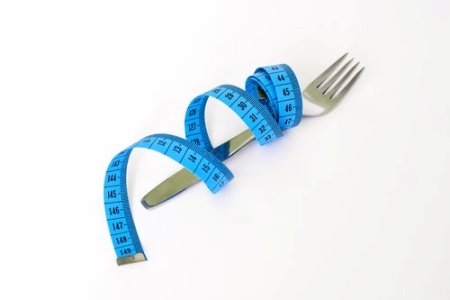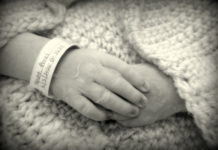Q: Now that it’s January, diets and lifestyle changes are taking over my newsfeed! I want to feel more energetic and fit into my clothes better, but all of the different advice is so confusing! I try to make healthy choices, but it seems like what is acceptable on one plan is a no-no on another. I just want to know what’s best for my body. I want live a healthy lifestyle, but how do I know what to choose?
A: While we may not participate in all the standard Gregorian New Year’s celebrations, somehow we still find ourselves knee-deep in New Year’s Resolutions. And the kicker? As Jews, we go through this in September as well.
A disproportionate number of these goals involve weight loss.
But what is really the goal here? Health? Health doesn’t necessarily come as a side dish to a smaller midsection.
But this is what we are led to believe.
And we think about it each morning when we choose our clothing, when we eat any meal at all, when we look at magazines or even at the sides of busses. Because reasonable life goals rush by us at 55 miles per hour.
So what’s wrong with making the commitment to take better care of yourself? To eat more vegetables and move your body more? What’s wrong with the choice to limit our food options and push the plate away when we are at a fullness level of 7 out of 10 on Shabbos?
Is it a lifestyle? Or is it another diet?
It all comes down to intention. Does the plan you are on intentionally restrict food, either in type or amount, for the purpose of weight loss? If the goal is weight loss, it’s a diet. Making the choice to care for ourselves doesn’t involve beating ourselves up mentally or physically. The choice to care for ourselves takes into account our mental and emotional state. It doesn’t prioritize the idea of physical health over emotional health.
So what is a healthy lifestyle?
Choosing a healthy lifestyle is when you make the choice to be mindful of the decisions that affect your mind and body. If you don’t like the treadmill, you don’t ever have to get on one again. Joyful movement is the goal here. Health isn’t only found at the gym. It can also be found in your living room with a free YouTube dance video.
You choose a healthy lifestyle when you allow yourself to enjoy all kinds of foods, accounting for faith and medical restrictions. When you choose a meal, think about the intention behind it. Is it because you truly enjoy that food? Will it enhance your eating experience? Your mood? Your day? Once you truly allow yourself to enjoy chocolate without the guilt, you will find that you also enjoy the refreshing crunch of romaine lettuce or the creamy texture of fresh hummus.
But when is it a diet?
A diet is when you do the same fun YouTube videos and enjoy the same salad and hummus, but the goal is to lose weight. When you keep track of every bite that goes into your mouth in hopes that you’ll wake up the next morning a pound or so smaller. When you force yourself to turn on that fitness video, even when you are feeling under the weather, because you made a commitment to it.
Enough of these “you are what you think/change your mind, change your life”, or the “what’s going to happen to me if I don’t lose weight?” thoughts.
Here is the hard science. There isn’t as strong a link between weight and ill health as we have been led to believe. There is, however, a very strong link between weight cycling and poor health. Weight cycling is when you lose weight, then gain it back, then lose it, then gain it back—something that has been experienced by many, many dieters over many years.
So what does cause poor health?
Certain habits that may impact weight also impact state of health. Lack of movement, poor nutrition, and inadequate sleep all have strong associations with poor overall health and low quality of life. Weight cycling, also called yo-yo dieting, has been proven to lead to increased body fat, decreased muscle mass, and is associated with illnesses such as fatty liver, diabetes, heart disease, and increased blood pressure!
The same habits that affect the number on the scale can cause health ills. But shifting to focus valuable energy on the habits, rather than the scale, is a move toward comprehensive health. By focusing on the scale to show health progress, we miss out on meaningful health milestones, such as mood and sleep improvement. And when the focus is on the scale, it’s so easy to miss noticing real progress, and therefore get discouraged and quit.
What is good health then??
A healthy person is someone with energy. Someone who sleeps well and can enjoy a positive attitude. This person enjoys all kinds of different activities, a variety of foods, and is able to participate in social events without the stress of, ‘What can I eat there? Who will see me eat? What will they think of my food choices?’ Generally, this person also has healthy blood results: A1c, CRP, blood glucose, and lipid profiles.
Am I a bad person for wanting to lose weight?
Absolutely not. We are sent subtle and not-so-subtle messages on how we should look from a very young age. That’s not something you can turn off overnight. You’ll probably have to let your brain marinate in this for a while before it sounds appealing. As frustrating as the quest for a tiny waistline is, it’s a struggle we are used to fighting. Letting go of something we are accustomed to dwelling on, even as frustrating and time-consuming as the weight-loss journey is, can be very difficult. Especially if you’ve been told by medical professionals that losing weight will help you feel less physical pain. And while it can be very tempting to start a crash diet in response, in at least 95% of cases, the weight will be back 5 years down the line—and with a vengeance.
The best thing to do is to consult with a credentialed and experienced professional in order to create a plan meant for your body and your situation. In many cases, the very pain “caused” by increased weight can be helped by simple lifestyle changes. Supplements or therapeutic exercises prescribed by the appropriate professional can go a long way to relieving pain in a sustainable and responsible way.
So if someone is eating a variety of food and exercising, why wouldn’t they lose weight?
We love to make things black and white. Calories in, calories out. It’s just not that simple. There are other factors in contention here. Genetics, other lifestyle factors, stress, sleep, hormones, and underlying conditions, such as hypothyroidism, all alter how the body processes food and stores weight. And this is different for everyone. Even within the same family. Even twins.
Should I just give up?
You should never give up the pursuit of health. But this way of thinking requires a shift. Look to your mood and your feeling of well-being for success, rather than the scale. Heal your relationship with food so that you can focus on really improving your life. Try to see your body shape in a neutral way rather than poking and pinching yourself all the time. This isn’t easy.
If you decide that you may benefit from the help of a professional, look for a non-diet Registered Dietitian. If you need help finding someone in your area, please email me at the link in my bio—I’m very happy to help you on your way to true health and freedom from the scale!











